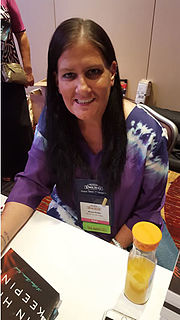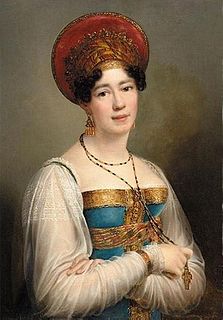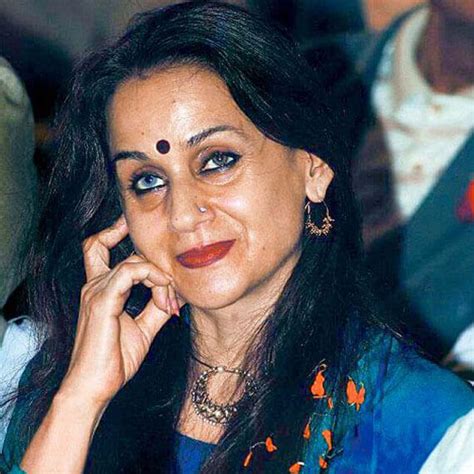A Quote by Sabine Baring-Gould
Verdiana was the child of poor though well-born parents, and her knowledge of the sufferings of the poor from her own experience in early years made her ever full of pity for those in need.
Related Quotes
"And when you had made sure of the poor little fool," said my aunt - "God forgive me that I should call her so, and she gone where YOU won't go in a hurry - because you had not done wrong enough to her and hers, you must begin to train her, must you? begin to break her, like a poor caged bird, and wear her deluded life away, in teaching her to sing YOUR notes?"
She lived almost fifty years of her life completely dedicated to the care of the poor and the marginalized. Astonishingly, for those nearly fifty years she identified completely with the poor she served by her own experience of being seemingly unwanted and unloved by God. In a mystical way — through this painful interior "darkness" — she tasted their greatest poverty of being "unwanted, unloved, and uncared for."
If you saw her in these moments, you might think she was collecting her thoughts in order to go forward. But I see it another way: Her mind is being overwhelmed by two processes that must simultaneously proceed at full steam. One is to deal with and live in the present world. The other is to re-experience and mourn something that happened long ago. It is as though her lightness pulls her toward heaven, but the extra gravity around her keeps her earthbound.
My mother didn't feel sorry for herself, she was left with no child support, no alimony at a very young age, with a child to raise, a high school education and she just figured it out. She didn't complain, she didn't rely upon government, she relied upon her own skill set, her own self confidence, her own drive in moxie and her own duty to me and her and she relied upon her family and her faith.
She was like me in lineaments-- her eyes Her hair, her features, all, to the very tone Even of her voice, they said were like to mine; But soften'd all, and temper'd into beauty; She had the same lone thoughts and wanderings, The quest of hidden knowledge, and a mind To comprehend the universe: nor these Alone, but with them gentler powers than mine, Pity, and smiles, and tears-- which I had not; And tenderness-- but that I had for her; Humility-- and that I never had. Her faults were mine-- her virtues were her own-- I loved her, and destroy'd her!
All of us--all who knew her--felt so wholesome after we cleaned ourselves on her. We were so beautiful when we stood astride her ugliness. Her simplicity decorated us, her guilt sanctified us, her pain made us glow with health, her awkwardness made us think we had a sense of humor. Her inarticulateness made us believe we were eloquent. Her poverty kept us generous. Even her waking dreams we used--to silence our own nightmares.
"She (Minnie Ruth Solomon) was unusual because even though I knew her family was as poor as ours, nothing she said or did seemed touched by that. Or by prejudice. Or by anything the world said or did. It was as if she had something inside her that somehow made all that not count. I fell in love with her some the first time we ever talked, and a little bit more every time after that until I thought I couldn't love her more than I did. And when I felt that way, I asked her to marry me . . . and she said she would."
The art of not experiencing feelings. A child can experience her feelings only when there is somebody there who accepts her fully, understands her, and supports her. If that person is missing, if the child must risk losing the mother's love of her substitute in order to feel, then she will repress emotions.
A woman knows very well that, though a wit sends her his poems, praises her judgment, solicits her criticism, and drinks her tea, this by no means signifies that he respects her opinions, admires her understanding, or will refuse, though the rapier is denied him, to run through the body with his pen.






































